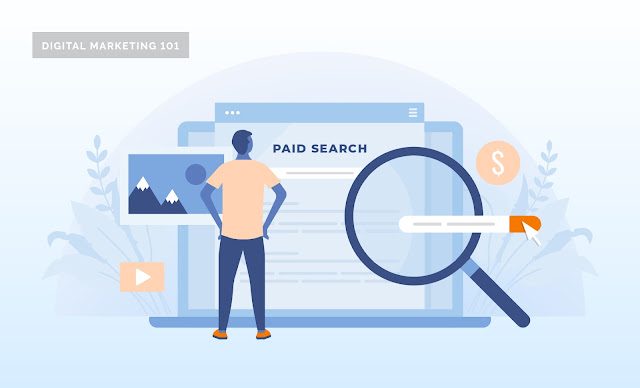In today's digital landscape, businesses must find ways to stand out among their competitors online. One of the most effective ways to achieve this is through search engine optimization (SEO) and pay-per-click advertising (PPC), which is commonly referred to as paid search marketing.
While both methods aim to increase a website's visibility in search results, there are significant differences between paid search and organic search. In this article, we'll explore ten insightful differences between the two and help you understand which approach might be right for your business.
1. What is Paid Search Marketing and Organic Search
Paid search marketing, as the name suggests, involves paying search engines like Google or Bing to display ads at the top of search results pages. These ads are often targeted to specific keywords and phrases that users search for. Organic search, on the other hand, refers to the unpaid listings that appear below the ads. These listings are ranked by search engines based on their relevance and authority.
2. Cost
One of the most significant differences between paid search and organic search is cost. Paid search requires a financial investment, as you pay for each click on your ad. The cost per click (CPC) can vary depending on the competition for the keyword, the industry, and other factors. Organic search, on the other hand, doesn't have a direct cost. However, it requires time, effort, and resources to create high-quality content, optimize your website, and build authority.
3. Control
Paid search offers businesses more control over their online visibility. With paid search, you can set a budget, choose specific keywords and demographics, and adjust your ad's messaging, among other things. This level of control allows businesses to quickly pivot their strategy and adapt to changing market conditions. Organic search, on the other hand, is subject to search engine algorithms, which can be difficult to predict or influence.
4. Speed
Paid search can generate quick results, as ads can be launched and begin appearing in search results pages in a matter of hours. This makes it an ideal option for businesses that need to generate leads or sales quickly. Organic search, on the other hand, takes time to build. Creating high-quality content, optimizing your website, and building backlinks all take time, and it can take several months before you see significant results.
5. Positioning
Paid search ads typically appear at the top of search results pages, above the organic listings. This prime position gives paid search ads more visibility and can lead to higher click-through rates (CTR). Organic listings, on the other hand, are ranked based on relevance and authority, and can appear anywhere on the search results page.
6. Click-Through Rates
Click-through rates (CTR) are another significant difference between paid search and organic search. Paid search ads tend to have higher CTRs, as they appear at the top of search results pages and are more visible. Organic listings, on the other hand, can have lower CTRs, as they may appear lower on the page and be less noticeable.
7. Relevance
Paid search ads are only displayed when users search for specific keywords and phrases that you have targeted. This means that paid search ads are highly relevant to the user's search query, and therefore more likely to result in a click. Organic listings, on the other hand, are ranked based on relevance and authority, which can be influenced by a range of factors, including the content on your website, backlinks, and other external factors.
8. Longevity
Paid search ads have a limited lifespan, as they are only displayed while you are actively paying for them. Once your budget is exhausted, your ads will no longer appear in search results pages. Organic search, on the other hand, can have a longer lifespan, as your content and website can continue to generate traffic and visibility long after it has been published or updated.
9. Targeting
Paid search allows for precise targeting of specific keywords, demographics, locations, and other factors. This can be especially useful for businesses that operate in a niche market or have a specific target audience. Organic search, on the other hand, can be more difficult to target, as it relies on search engine algorithms to determine relevance and authority.
10. Competition
Paid search can be highly competitive, as businesses bid on keywords and phrases to display their ads. This can result in high CPCs, especially in industries with high competition. Organic search, on the other hand, is subject to search engine algorithms, which can be difficult to predict or influence. However, organic search can also be highly competitive, as businesses vie for top rankings on search results pages.
Conclusion
In conclusion, paid search marketing and organic search are both effective ways to improve a website's online visibility. However, they differ significantly in terms of cost, control, speed, positioning, click-through rates, relevance, longevity, targeting, and competition. By understanding these differences, businesses can make informed decisions about which approach is best for their needs and goals. Ultimately, a combination of both paid search and organic search can provide the best results for businesses seeking to improve their online visibility and generate leads and sales.





0 Comments